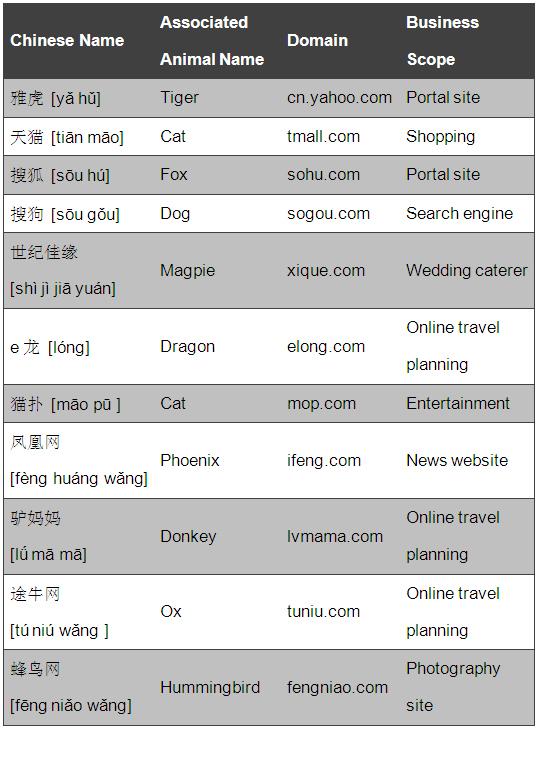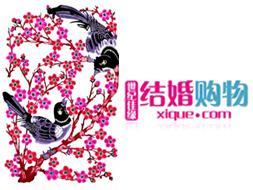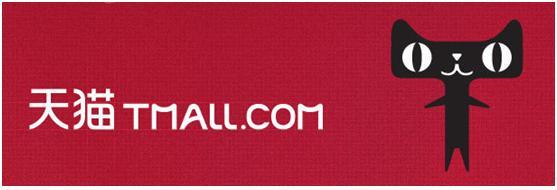

In the realm of China’s internet landscape, animal-themed names dominate the kingdom of top-ranking websites. From e-commerce and social media to search engines and news platforms, the fascination with animals permeates every sector of China’s internet brands. Brand naming extends beyond mere identification; it serves as a cornerstone for effective brand representation and identity establishment. As Philip Kotler notes, we are now in an era of emotional consumption, where consumers are captivated not just by the product or service but by the underlying values, including brand and corporate image. Explore the fascinating world of China internet brands and their animal-inspired identities.
It remains relatively difficult for virtual businesses such as websites or networks to create brand image because their services can’t be tangibly perceived by consumers. That is where creating brand names using familiarized items can greatly infuse brand recognition among consumers. In China, there is a trend of incorporating animal names into brand names.
This article will explore into the different animal-related brands online and provide insight on why companies choose to do so with a branding and cultural approach.


Sohu
搜[sōu]: search, collect, gather
狐[hú]: fox
Sohu is the largest portal website in China. The character 搜[sōu] means “search” and represents the website’s searching ability. Founder Zhang Chaoyang also explains that it represents how users can quickly search and locate what they are looking for on Sohu. 狐[hú] means fox and illustrates a smart or even cunning image in the Chinese culture.
All together, the combination makes people understand the purpose of the website and illustrates an “intelligent” brand image among the public.

Yahoo
雅[yă]: elegance, graceful, refined
虎[hŭ]: tiger
For foreign websites entering China, some may also select an animal name. Take Yahoo for example, the word “雅”[yă] means elegance and refined; “虎”[hŭ] means tiger. The pronunciation YA HU matches with Yahoo and portrays an image of a fierce yet graceful animal. The tiger could also relate to Yahoo’s brand positioning and its status in the internet industry.

XiQue
喜[xǐ]: happy, delighted
鹊[què]: magpie
世纪佳缘 [shì jì jiā yuán] is one of the most popular dating websites in China. It also has a wedding-related e-commerce service with the domain name xique.com, which means magpie. In the Chinese culture, many believe that magpie is a symbol of good luck, especially for a wedding. The utilization of this animal relied on the strong cultural heritage and instantly signals the website’s attributes to weddings.
1) Internet creates a virtual environment for people who use it, which means websites and networks are intangible. Since the users could not touch or feel the attributes, websites started using a familiarized item as their domain to create an emotional attachment or generate an emotional reaction from the users. It helps to reduce the gap between internet brands and their users.
2) Entertainment is one of the most important functional elements of internet. Employing an animal’s name as domain or logo design is a reflection of this culture. Some brands may want to be playful in this aspect.
3) Sometimes websites utilize images of animals to illustrate their brands’ attributes because of shared similarities in the Chinese culture. Using an animal name as its domain helps to signify its business scope.
4) Using an animal’s name is easy to remember. The impression can also be transferred into a brand mascot. The internet industry is especially crowded with different types of names. A familiar animal name could enhance consumers’ recognition rate and association path. A brand mascot with animal can help to establish that connection in order to build positive brand perceptions. Mascot could help the company to extend or revitalize their brand.
When a website adopts an animal as its name in the vast landscape of China’s internet brands, that animal transforms into a symbolic representation of the brand itself. The success of this branding strategy hinges on maintaining a consistent marketing and communication campaign to nurture and cultivate the desired brand image and equity associated with the chosen animal name. A recent noteworthy example is the prominent B2C platform TMall, which made a strategic shift by changing its Chinese name to 天猫 [tiānmāo], translating to Sky Cat. This move sparked curiosity and questions, prompting Labbrand’s Creative Director, Amanda Liu, to emphasize in an interview with CBN Weekly that the effectiveness of the new name is intricately linked to the subsequent actions taken by Alibaba Group, the parent company of TMall. Explore the dynamics of China internet brands and their strategic naming choices.

A Labbrand Group Company © 2005-2025 Labbrand All rights reserved
沪ICP备17001253号-3To improve your experience, we use cookies to provide social media features, offer you content that targets your particular interests, and analyse the performance of our advertising campaigns. By clicking on “Accept” you consent to all cookies. You also have the option to click “Reject” to limit the use of certain types of cookies. Please be aware that rejecting cookies may affect your website browsing experience and limit the use of some personalised features.